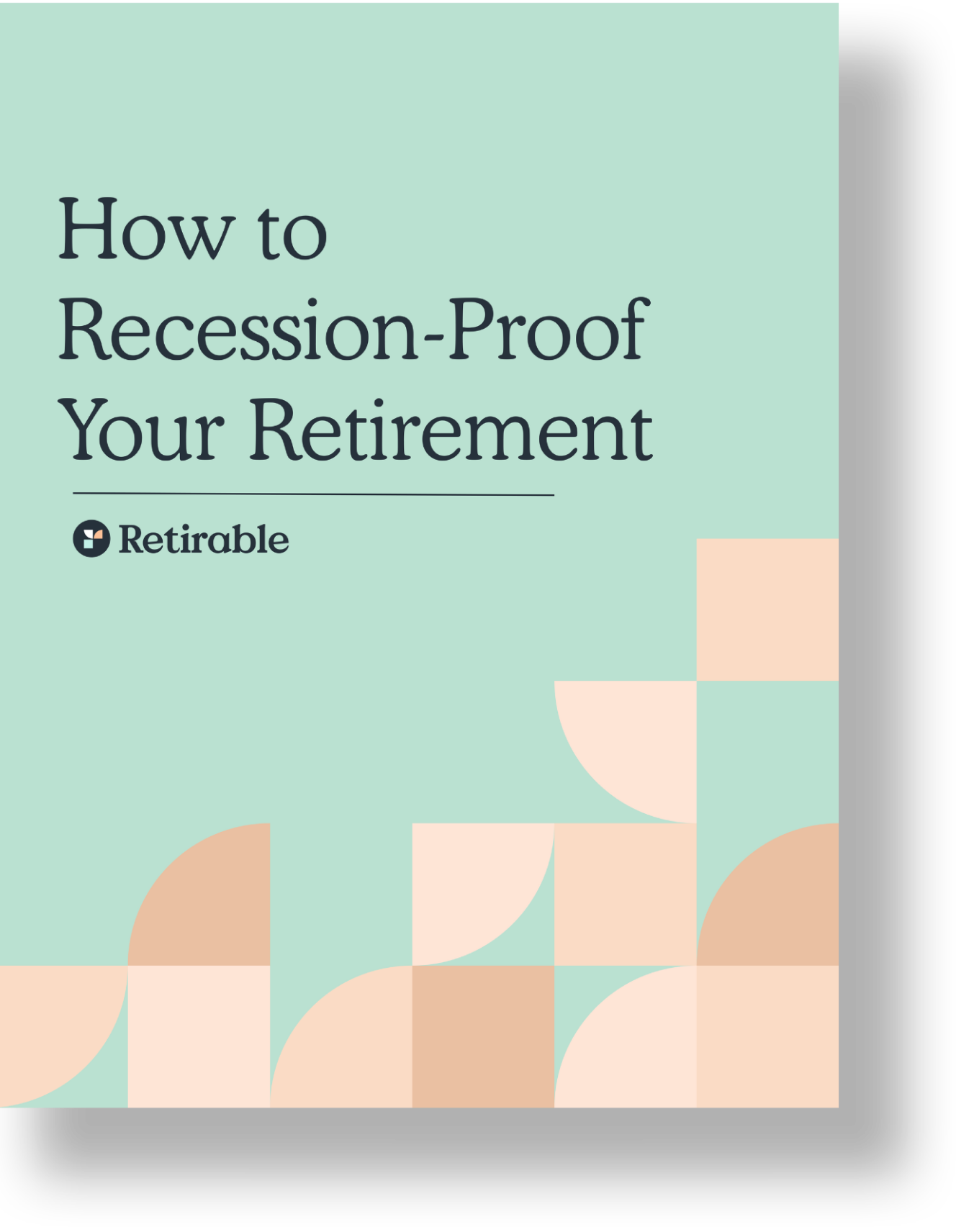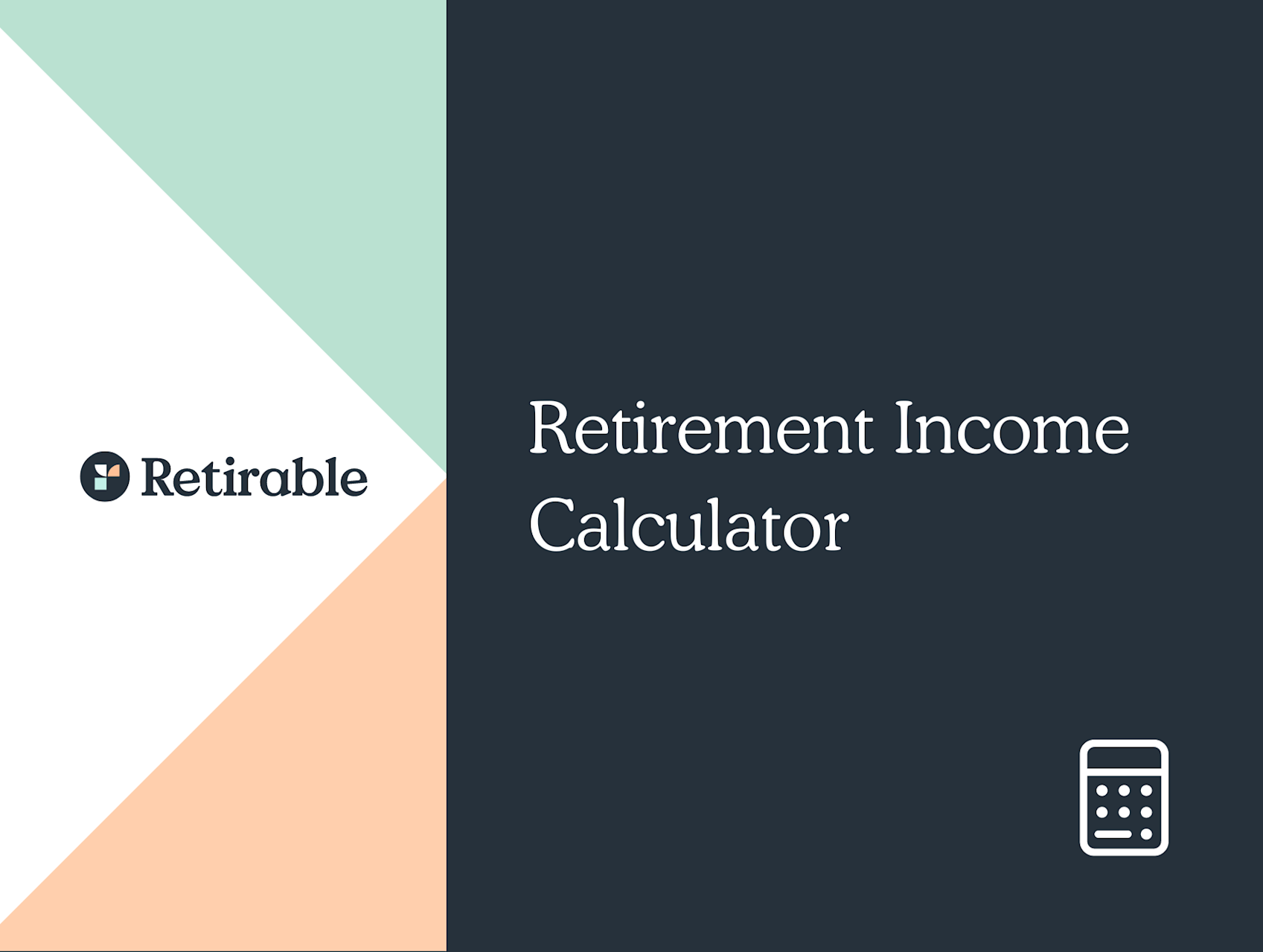Income
Even without substantial Social Security income, you can retire with $2 million dollars and be fairly comfortable. But if you’re planning to retire well before Social Security eligibility kicks in, the answer to, “Is 2 million enough to retire?” becomes a little less optimistic. It can be done, but you might need to weigh your spending plans against your desire to leave the workforce—and consider rising inflation.

C.E Larusso
•
Published April 21st, 2022
•
Updated April 25th, 2024
Table of Contents
Key Takeaways
Retirees with $2 million can enjoy a comfortable retirement, especially with interest added.
A savings of $2 million allows most retirees to live in the most expensive US states, such as California and Hawaii.
Retiring early can cut into that savings due to early withdrawal penalties and delayed Social Security.
With the right combination of budgeting and interest, a retiree can make early retirement work.
Even without substantial Social Security income, you can retire with $2 million dollars and be fairly comfortable. But if you’re planning to retire well before Social Security eligibility kicks in, the answer to, “Is 2 million enough to retire?” becomes a little less optimistic. It can be done, but you might need to weigh your spending plans against your desire to leave the workforce—and consider rising inflation.
How Earnings and Inflation are Impacting Retirement for Many Americans
In June of 2022, inflation reached a staggering high of 9.1%—this is the highest jump seen since the 1980s. Since then, the rate has dropped, but it is still above the 2% average that indicates price stability. As of January 2024, the rate was at 3.1%, which means that Americans paychecks are not going as far as they used to for common consumer items. In short, it’s more expensive to pay for groceries, gas, and other necessities.
These are some of the categories hit hardest, with percentages indicating year-over-year price changes:
- Juices and other drinks: 29%
- Beef steaks: 10.7%
- Sugar: 7.2%
- Baby food: 8.7%
- Peanut butter and other fats: 5.1%
- Electricity: 3.8%
Given the overall higher cost of goods, some are finding that they need to cut back on retirement savings. In addition, the New York Times reported in 2023 that there has been an increase in the number of hardship withdrawals taken out of 401(k) accounts. Ultimately, this has delayed retirement for many, with some people saying it's entirely out of reach.
Even if you haven’t needed to withdraw from your account or pause saving, it’s likely that inflation has had some effect on your retirement saving vehicles—different accounts weather inflation in different ways.
Social Security
While Social Security benefits are evaluated every year to be adjusted against the cost-of-living, these adjustments have historically been seen as inadequate. The Senior Citizens League reported that seniors lost one-third of their buying power between 2000 and 2021. The League also noted that the cost of goods and services increased by 99.3% between 2000 and 2020, while the Social Security COLA adjustments only rose by 53%.
Note, also, that by waiting until you are older to take your Social Security benefits, the more you will receive each month. When you take the earliest Social Security option, you dramatically reduce your monthly payout for the remainder of your life. Crunch the numbers to determine the difference between retiring at 60 with $1 million or waiting until you’re 65, 66, 67, or later.
Pensions
Pension plans are typically tied to several of your last years of salary rates. If a period of high inflation hits during the last few years of your working years, it’s possible that your final benefit amount may come in lower as the calculation was made on pre-inflation salary. If high inflation hits after you retire, your payouts will be based on the salary you earned previous to inflation. It’s also important to note that private pensions often do not adjust for inflation at all—only state or local government plans.
401(k) and IRA Accounts
Investments and dividends don’t adjust for inflation, so the money invested in your 401(k) or IRA can be negatively impacted during periods of high inflation. For example: if you’re getting a return of 10% on your 401(k), but inflation hits 8%, you’ll only see a 2% gain on your investment. If you’re getting a return below 8%, your net gain will be negative. The typical target for a 401(k) is a 5 to 8% return (IRAs are typically between 7 and 10%), so when inflation rises above this, your 401(k) could take a hit. That said, 401(k) accounts are still good investment vehicles as they see a higher interest rate than many other types of accounts.
Even though the inflation rate is out of your control, there are some actions you can take to mitigate the effects of it on your retirement savings.
- Diversify: You shouldn’t hold only stocks or only bonds—make sure there’s a nice diversification in your portfolio holdings. Be sure to discuss your specific investments with a Certified Financial Planner.
- Adjust your planned spending: It’s always smart to assume there will be some level of inflation, and if you’re worried about a high inflation period hitting while you’re in retirement, adjust your budget accordingly, and make calculations based on a higher inflation rate, such as 5%, rather than a lower one. Example: If you were planning to retire with $50,000 in annual retirement income, a 5% inflation rate would mean you’d need to give yourself a $2,500 raise starting in your second year of retirement.
- Pay off debts: Adjustable-rate mortgages and credit card debt should be paid off before you retire, to prevent the rates from jumping during high inflation periods.
- Hire a Certified Financial Planner: Preparing and saving for retirement is not easy, but it’s a lot easier with a professional who can help you strategize and consider all of your future goals. Talk to a Retirable financial planner to go over your finances and set up milestones to help you reach your retirement goals.
Is $2 Million Enough to Retire on in 2024?
Ideally, the rate of return on your investments is enough for you to live off of, so you never need to touch your principal.
With $2 million in your retirement savings and factoring in the average annual rate of return between 10–12%, you’ll have between $200,000 and $240,000 to live off of each year. If, though, there’s a slow year and the returns are low—let’s say 8%—you’ll only have $160,000, or you’ll need to dig into your principal, which will lower your overall returns for future years. $160,000, however, is enough to live comfortably in some of the US more expensive cities, especially if you own your house outright or are able to downsize for a more affordable place. According to CNBC, here is what retirees in the following states need annually in order to live comfortably.
- California: $90,399
- District of Columbia: $99,980
- Hawaii: $121,228
- Massachusetts: $97,699
- New York: $88,444
These figures were calculated based on the price of common items and services, with the inclusion of a 20% comfort buffer—because it would not be enjoyable to live paycheck to paycheck in retirement.
It’s up to you to decide, after crunching some numbers, if $2 million is enough money to live off of. The average American only saves about $350,000 for retirement, so $2 million is far and beyond that, but your plans for retirement could be lavish, with lots of travel, hobbies, and the goal of living on the beach or somewhere else expensive.
As you’re budgeting, consider some of the major costs you will likely see during retirement, such as:
- Housing: Housing prices continue to increase; if you don’t own your home and are renting, you should expect that you will be paying more for housing during retirement than you are now. In addition, keep in mind that your home maintenance costs will likely rise in retirement as you might not be as capable of doing certain tasks.
- Healthcare: The average 65-year-old couple today will spend around $12,000 on health care in their first year of retirement. It’s possible this number could be lower for you, if you are in great health, but it also could be much higher if you require the care of specialists or have any health issues that need to be addressed.
- Transportation: If you own a car, expect that gas prices will rise. If you don’t or are unable to drive, you’ll need to factor in alternate means of transportation, such as taxis or car-sharing services.
Don’t forget to add inflation to the big picture. Chances are, what costs $1 today will cost $1.50 or $2 by the time you leave the workforce, and that will only continue to increase as you progress through retirement.
Factors to Consider When Figuring Out How Much You Need for Retirement
Many financial planners will suggest reviewing these core categories to determine how much you need to save for retirement—while life will always be full of unexpected costs, having a sense of how much you need to live comfortably can prepare you to budget and plan smartly as you head into retirement.
- Cost of living: Expect the cost-of-living to rise each year. Typically, inflation jumps between 1 and 2% each year, but since the COVID-19 pandemic, we have been in a period of high inflation that has exceeded that. This means that the cost of everyday goods, such as food, clothing, and movie tickets, will rise, and your dollar won’t go as far to pay for these items. Make sure to calculate your future income needs based on a higher inflation rate.
- Taxes: It’s likely that you’ll pay lower taxes overall than you did when you were working—as you will be making less money—but each state has its own tax laws. Some, such as Colorado and Connecticut, tax social security. If you think you’ll be in a higher income bracket during retirement, consider opening a Roth IRA. These accounts require that you pay taxes upfront, but you will be able to t
- Keeping your current lifestyle: Do you want to live similar to the way you live now, or would you like retirement to be more luxurious, with more travel? Alternatively, would you consider downsizing? Many people choose to sell their home and live somewhere smaller during retirement, to save on costs, while others want to stay in their homes and in their neighborhood. In retirement, where you live won’t be tied to your career, so you’ll need to consider the best place to live and your overall lifestyle given your budget and savings.
- Your health: Health is a major consideration when deciding how much you need for retirement. If you are healthy, it’s possible you’ll live a long life, and will need ample income to sustain you for those extra years. If you have a medical condition, you might need to see specialists, and need to account for those costs and how much Medicare will cost you. Many retirees choose to purchase supplemental plans to get ample coverage, but that comes at a price
- Where you live: Tax considerations—both at the state and city level—will be a major consideration, as will the cost of housing and overall cost of living. You should also take into account if you live somewhere that requires you to drive most places, as transportation is another major cost factor.
- Your income: Beyond your Social Security, you should take a look at your various income sources. You might have rental income property, a hefty IRA, or other investment vehicles to pay for retirement. Some retirees enjoy work, so instead of retiring completely, they take on a part-time job to supplement their monthly pay. The other side of income is spending—make sure you do a deep dive on your spending and calculate where you can cut back during retirement.
How to Retire on 2 Million Dollars by Age
As you’re figuring how much your Social Security payout will be, it’s important to look at what $2 million in retirement will look like, divided over a number of years. The below table looks at the average life expectancy of 77, but you could live much longer, which will reduce this even further.
| Age | Income per year (without interest) | Interest on yearly income (at 4 percent) | Income per year (with 4 percent interest) |
|---|---|---|---|
| Age 40 | $54,054 | $2,162 | $56,216 |
| Age 45 | $62,500 | $2,500 | $65,000 |
| Age 50 | $74,074 | $2,963 | $77,037 |
| Age 55 | $90,909 | $3,636 | $95,545 |
| Age 65 | $166,666 | $6,666 | $173,332 |
Whether you’re wondering how long will $3 million last in retirement or $2 million, it’s typically wise to put off retiring as long as possible. You might, instead, choose to switch to a lower-paying job you love just to preserve some or all of your savings. The problem with asking, “Can I retire with 1.5 million or 2 million at a young age?” is simply that you might face penalties for early withdrawals. It’s also important to consider all the things you want to do in retirement. If you want to travel, for instance, those few extra years of work might make it worth it.
Frequently Asked Questions
Can You Live Off Monthly Interest on $2 million?
There are several factors you need to weigh to determine the answer, but ultimately you should decide if 4–8% interest is enough for you. At 4%, you’d have about $6,000 per month to work with, but there will be years when the interest is lower and you’ll have less—meaning you’ll need to tap into your principal or rely more heavily on your social security benefit.
Can A Couple Retire On $2 million?
How much will you have from your social security benefit? Where do you plan to live? Do you want to travel a lot? These are questions you need to ask yourself when calculating if you and your spouse are able to retire on the $2 million you saved. You should also factor in your health, life expectancy, and any medical needs, which can put a big dent in any retiree’s budget.
Can I Retire at 50,55,60,65 with $2 million?
Deciding when to retire will require a close look at your current lifestyle, the lifestyle you wish to have during retirement, and your current expenses. The best way to determine whether or not what you have saved is enough is to talk to a Certified Financial Planner; they can review your investments and make suggestions for ways you might be able to cut down on spending, allowing you to retire at the age you wish to.
What Percentage of Retirees have 2 million dollars?
The number of retirees who have successfully accumulated $2 million or more in their retirement savings is even smaller than those reaching the $1 million threshold. Recent estimates suggest that approximately 2% to 5% of retirees fall into this category. This relatively exclusive group typically includes individuals who have had higher-than-average earnings, strong investment strategies, and a disciplined approach to savings over many years. The attainment of such a substantial retirement nest egg underscores the importance of robust financial planning, including maxing out retirement contributions, diversifying investments, and possibly delaying Social Security benefits to maximize payouts. Achieving this level of financial security enables a more comfortable and secure retirement, often affording luxuries and stability that go beyond basic needs.
Final Thoughts
Whether you hope to retire with 2 million, the answer to how and when to retire still depends on your individual circumstances. A Certified Financial Planner (CFP®) can take a look at your retirement savings and help you set a budget that will allow you to clearly see the best retirement age for you.
Share this advice

A professional content writer, C.E. Larusso has written about all things home, finance, family, and wellness for a variety of publications, including Angi, HomeLight, Noodle, and Mimi. She is based in Los Angeles.
Will I Have Enough?
Maintain Your Lifestyle
Share this advice

A professional content writer, C.E. Larusso has written about all things home, finance, family, and wellness for a variety of publications, including Angi, HomeLight, Noodle, and Mimi. She is based in Los Angeles.
Free Retirement Consultation
Still have questions about how to properly plan for retirement? Speak with a licensed fiduciary for free.





